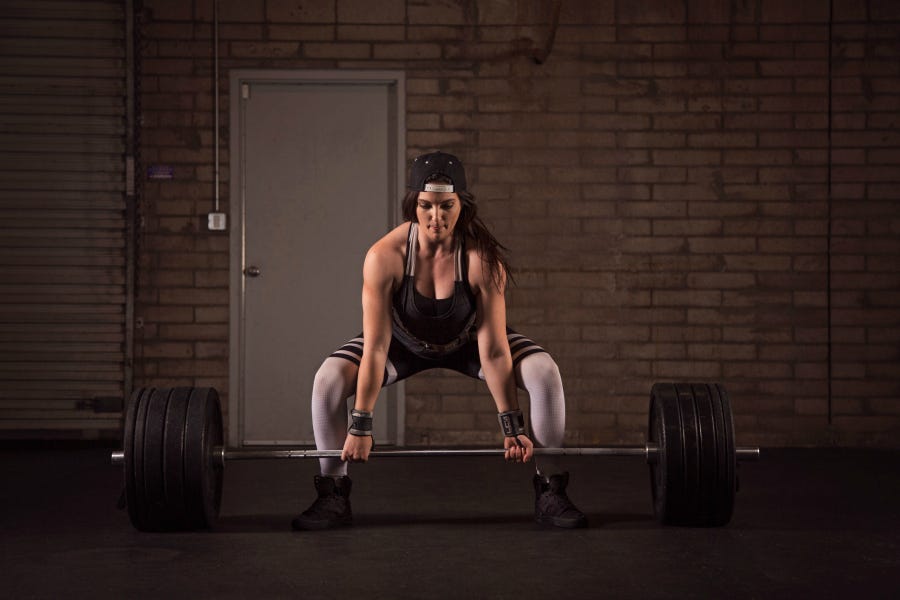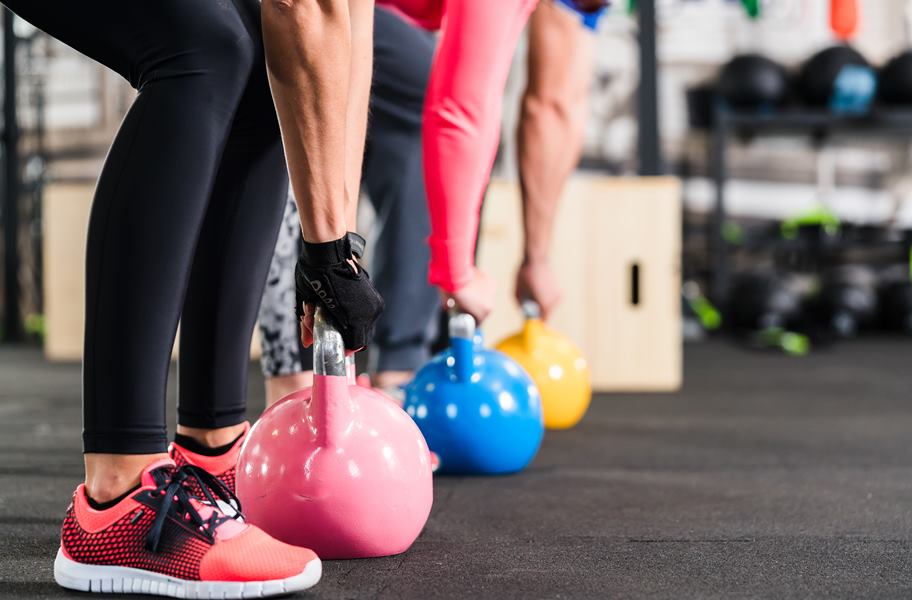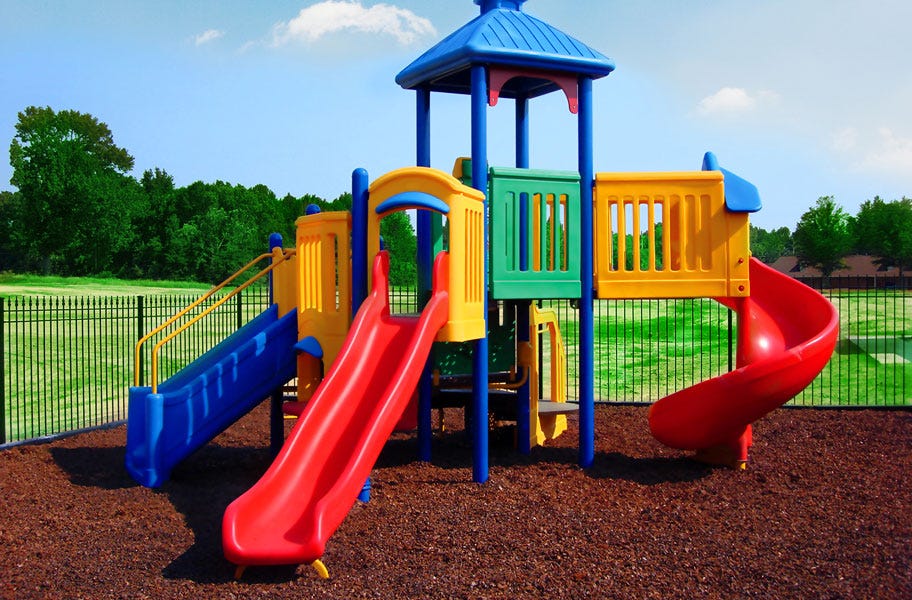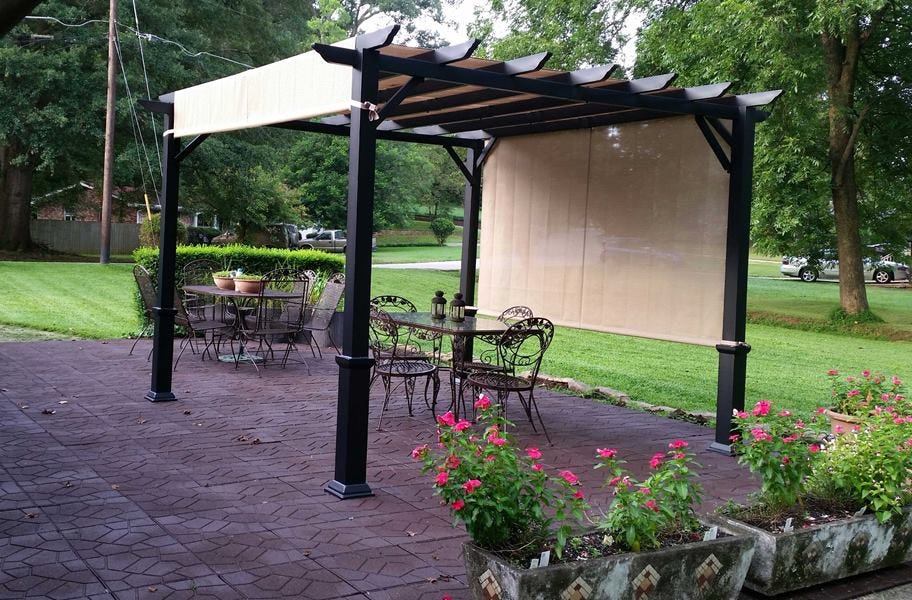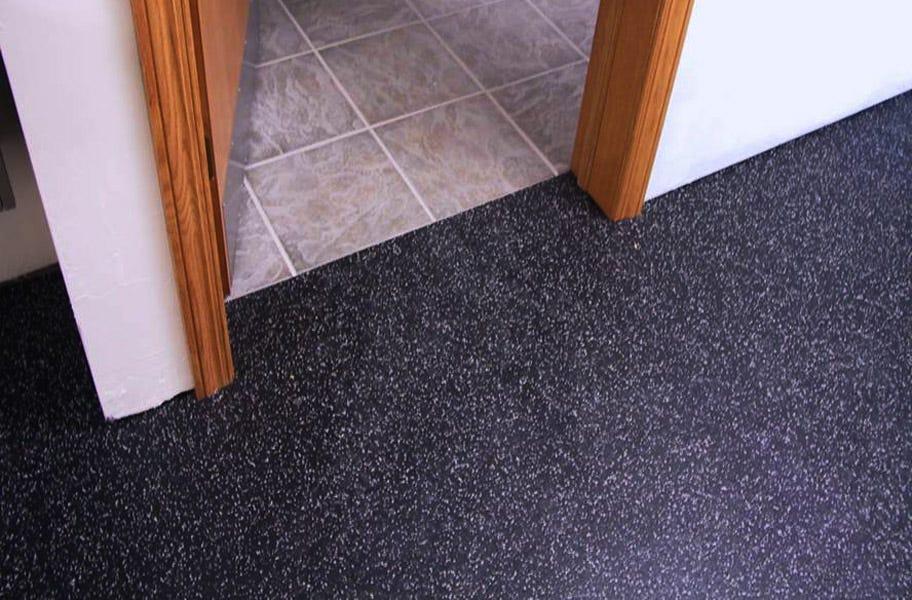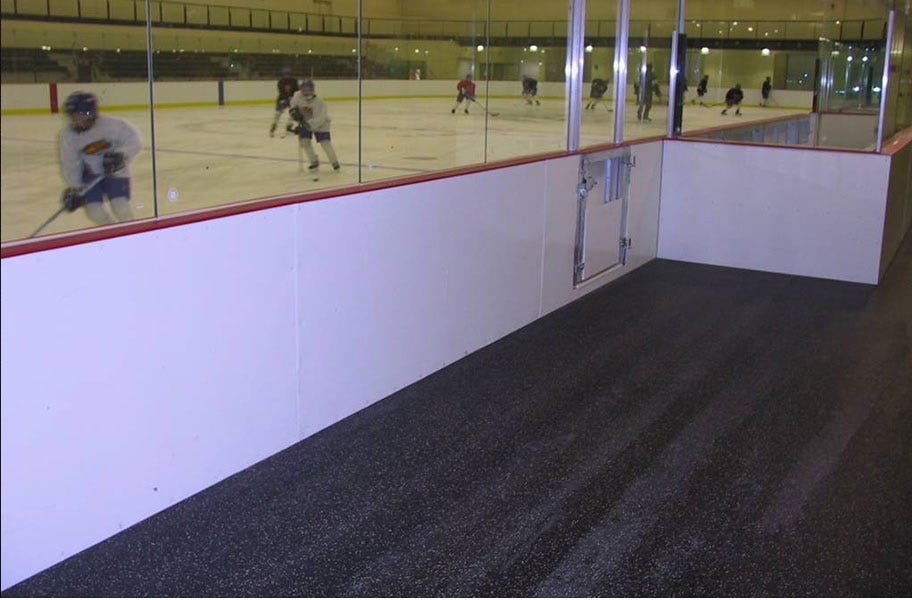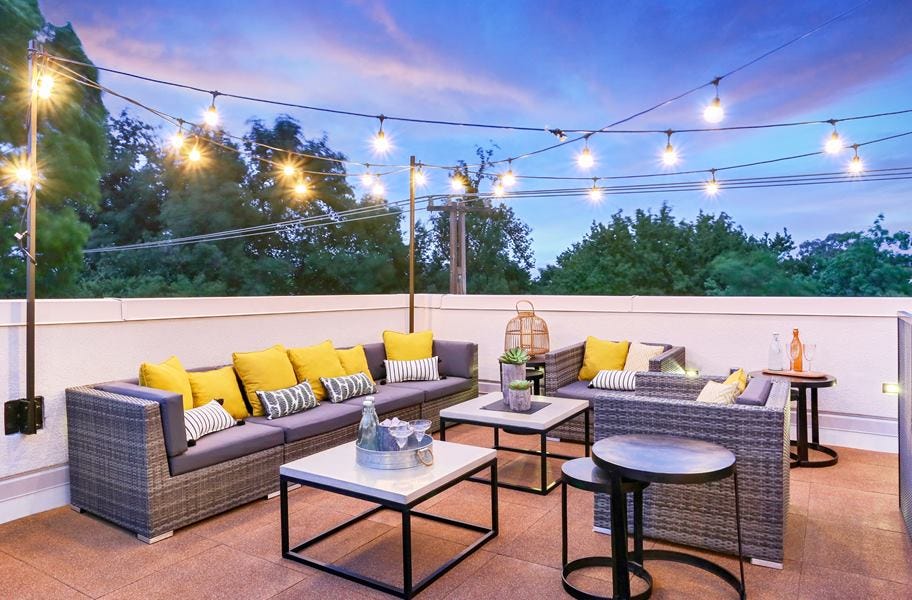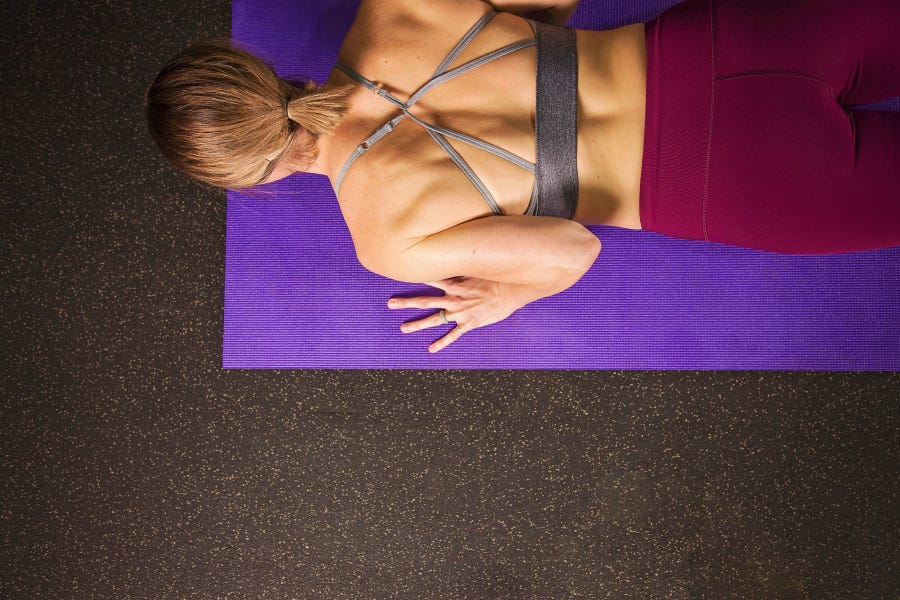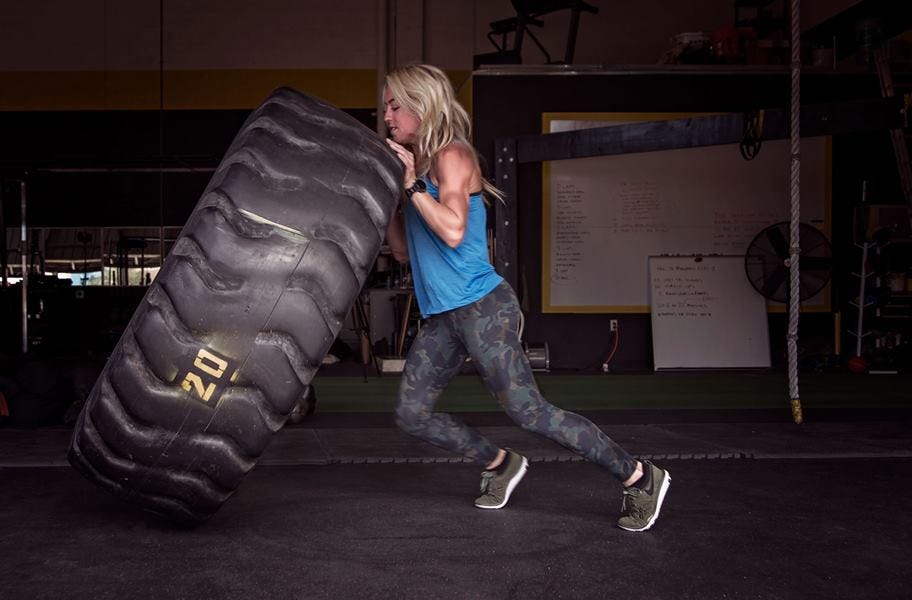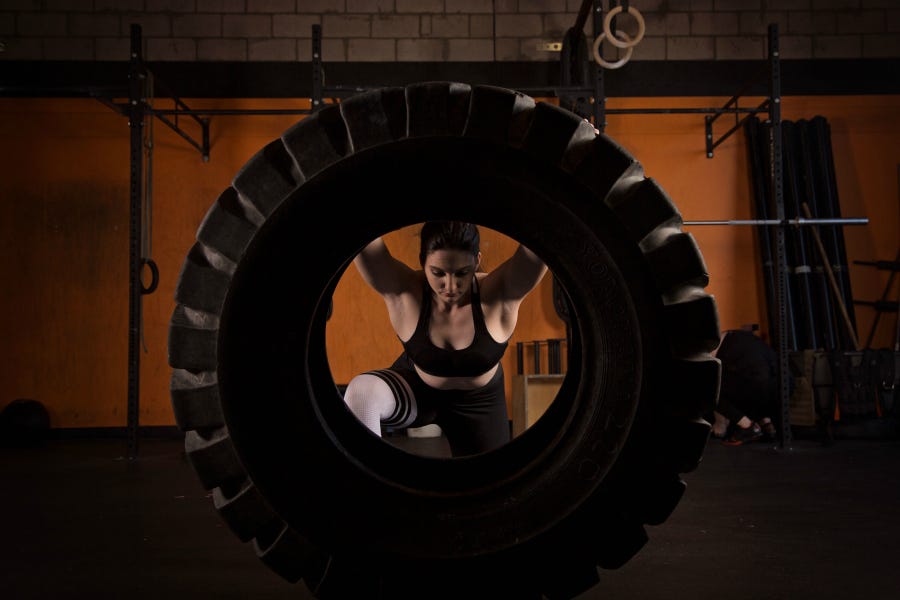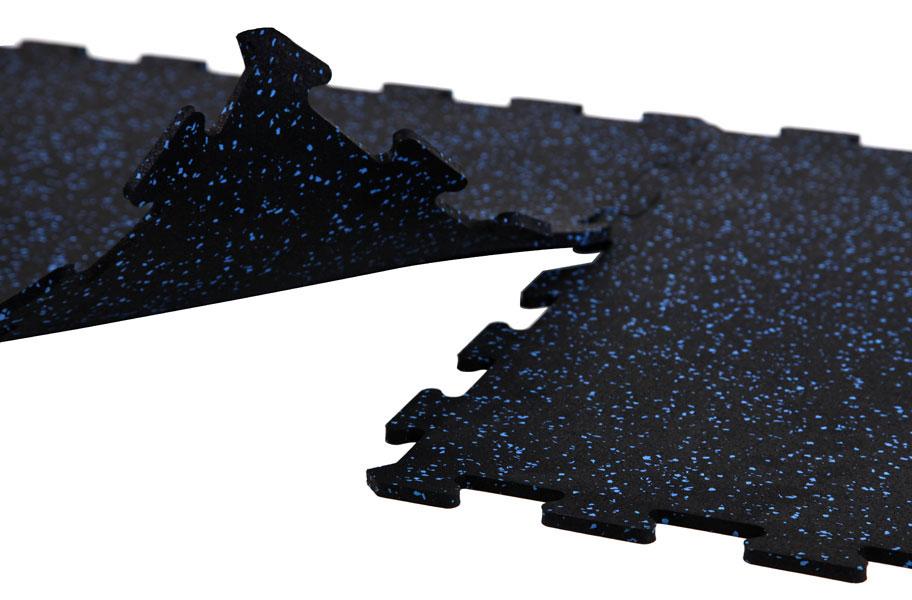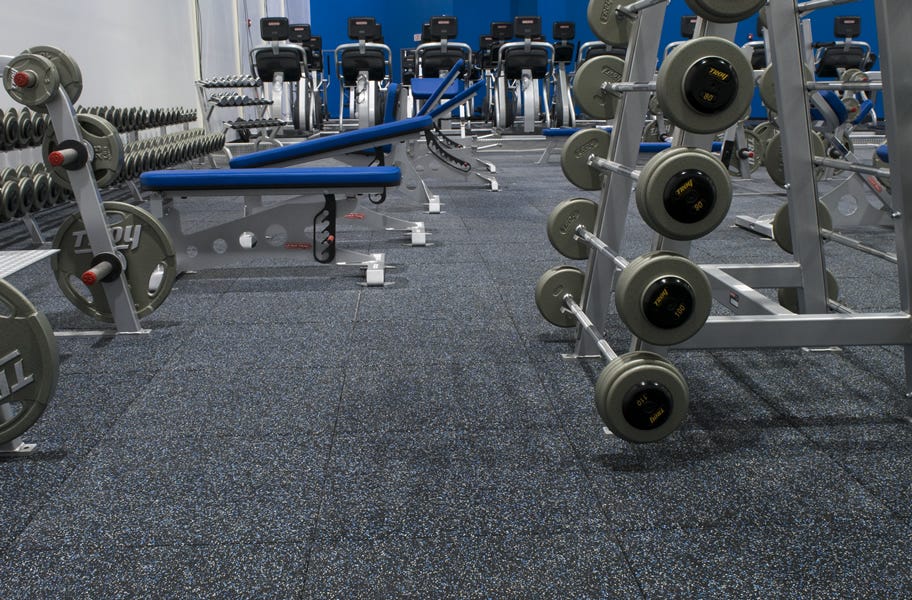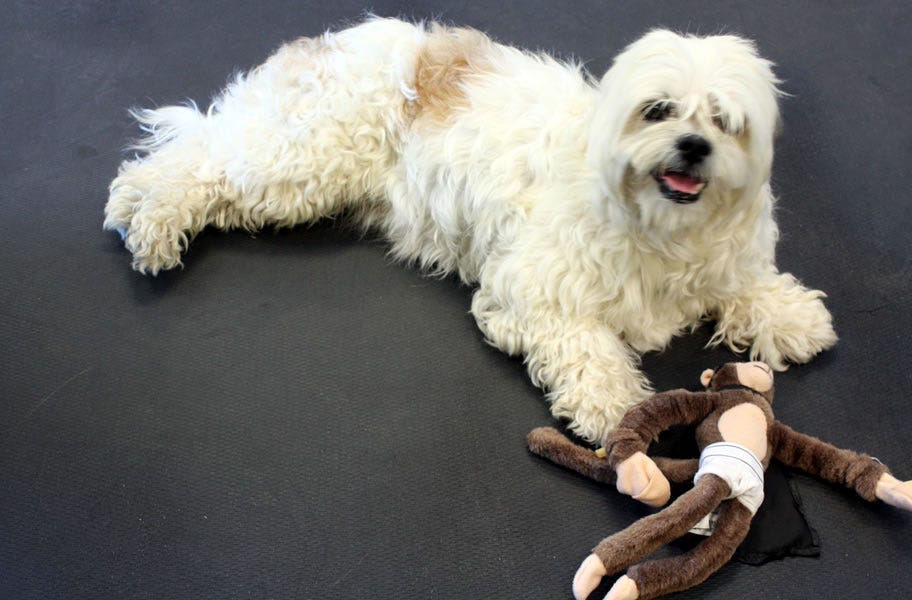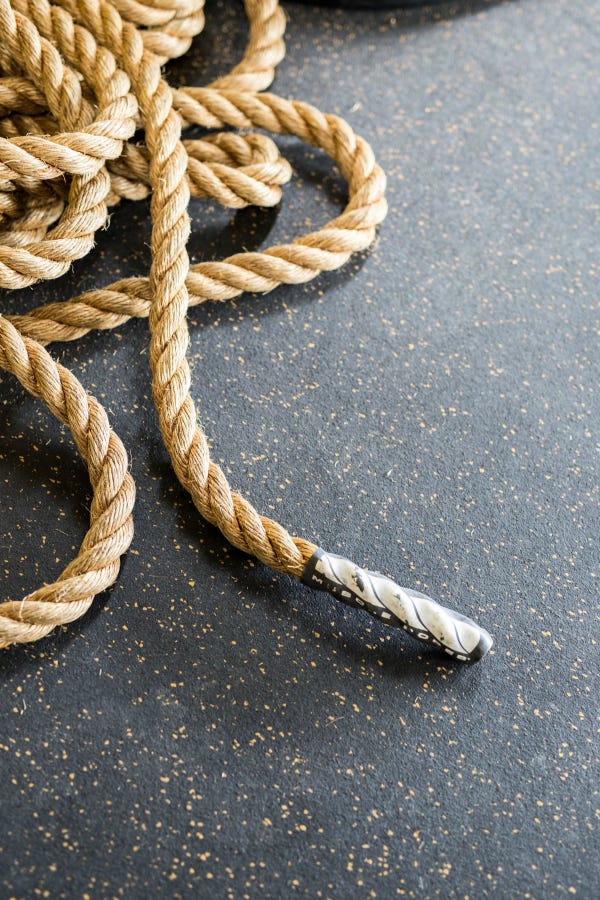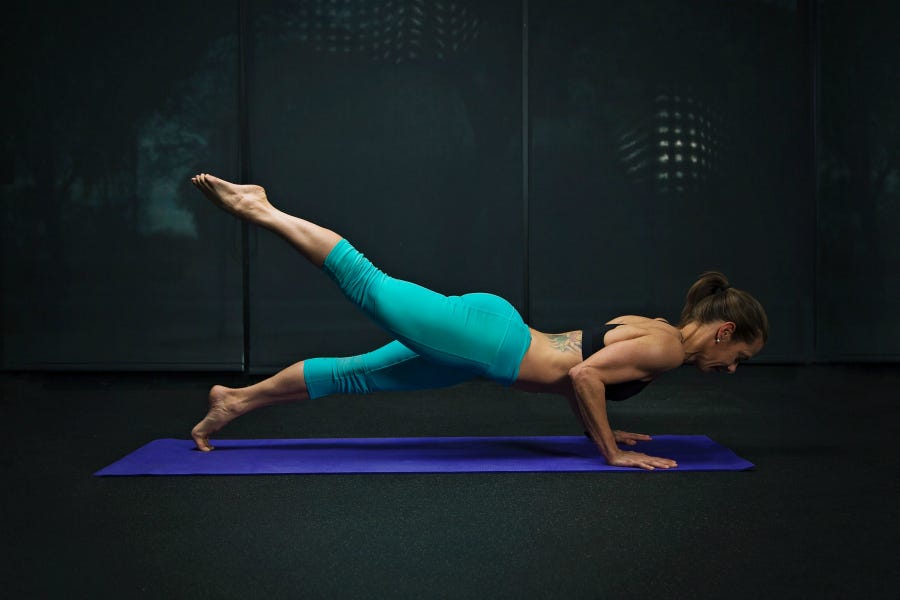
If you’re in the market for rubber flooring, chances are it’s your first time purchasing. It can seem overwhelming at first, like a new world. Don’t worry; we’ve got all your rubber flooring questions answered.
Most people have never heard of rubber flooring until the time comes when they need to buy it. It’s not exactly like buying a new toothbrush. It’s kind of a foreign product and, of course, you want to make sure you’re choosing the right floor.
If you’re in the market for flooring for your gym, high-traffic space or outdoor area, you’ve come to the right place. Rubber flooring is an extremely versatile specialty flooring option perfect for just about any space.
To warm us up, let's start with a little overview.
Now, before you commit to a floor, let’s make sure we can answer all your questions. Below, you’ll find our most frequently asked customer questions all compiled in one easy-to-find place.
Use & Durability
Before you purchase any floor, you need to know exactly how you’ll be using it and whether or not it can hold up to whatever you throw at it.
Is rubber flooring durable?
The quick answer is: yes! Super durable, in fact.
Rubber flooring is specially designed to stand up to heavy workouts and high-traffic areas. That means it can take a beating from your barbell and it can hold up to hundreds of people walking over it for days on end.
Of course, durability varies between products.
While the common misconception is that thicker rubber means higher durability, that’s not really true. The thickness is more of a bodyguard for your subfloor, with thicker rubber protecting your subfloor from heavier weights.
Durability, however, is about density. A super-dense rubber is super tough and durable, while a low-density rubber can be ripped apart with your bare hands.
Vulcanized and virgin rubber are the most durable, while eco rolls are the least. If you need superb durability, make sure to avoid those eco options.
Where is rubber flooring used?
Rubber flooring is extremely versatile. While primarily used as gym flooring, it is also commonly used in playgrounds, outdoors and other high-traffic areas that require durable and/or waterproof flooring, such as doggy daycare, dugouts, basements, boats, storage sheds, ice skating rinks, locker rooms and more.
SHOP GYM FLOORING SHOP PLAYGROUND FLOORING SHOP OUTDOOR FLOORING
Is rubber flooring waterproof?
One of the best things about rubber flooring is it’s extremely water-resistant! Spilled water, sweaty workouts, heck, even the ocean! No water is too much for rubber flooring.
In the event that you need to be 100% certain no water ever reaches your subfloor, you can use a seam sealer where the tiles interlock or where your rolls meet. However, for most cases, that is not necessary.
| Related Content >> The Best Waterproof Flooring Options |
Can rubber flooring be used outdoors?
Rubber floor tiles and rubber flooring rolls are great outdoor flooring options, as well. They are ultra-durable, specially designed to handle lots of use and abuse.
Tips for outdoor rubber flooring success:
- Keep flooring covered. While some outdoor rubber flooring options are UV-stable, others may fade under direct sunlight. We suggest checking the product to make sure you take proper precautions.
- Be cautious of the elements. While rubber flooring is water-resistant, there are many more elements that get into our rain and snow, such as salts. Most rubber flooring is porous and salts can get trapped in the pores.
- Account for expansion. With temperature fluctuation, rubber flooring may expand and contract.
Shopping
Once you start shopping, the process can quickly become overwhelming. There’s honestly not a lot to it once you get started. Here are the main things you need to know when you start shopping for rubber flooring.
How much does rubber flooring cost?
Rubber flooring ranges in price from under $1/sqft all the way to over $18/sqft.
Whoa! That is quite the range, eh?
There are many variables that factor in to determine cost. Our most popular gym flooring typically runs anywhere from $1.50/sqft-$3.50/sqft.
The good news is, rubber flooring is super DIY-friendly so your cost (typically) just comes down to materials and shipping.
Here’s what it would look like to floor a typical 10’x10’ home gym with rubber floor tiles.
| Thickness |
Good Deal Price |
Average Shipping Cost |
Good Deal |
| 1/4" | $1.89 | $50 | $250 |
| 8mm | $2.36 | $125 | $460 |
| 3/8" | $3.07 | $280 | $800 |
| 1/2" | $3.18 | $520 | $1,280 |
And here’s what it would look like to floor a typical 10’x10’ home gym with rubber flooring rolls.
| Thickness |
Good Deal Price |
Average Shipping Cost |
Good Deal |
| 1/4" | $1.31 | $240 | $480 |
| 8mm | $1.51 | $255 | $530 |
| 3/8" | $1.91 | $275 | $620 |
| 1/2" | $2.31 | $320 | $740 |
Note: Prices vary and are subject to change at any time. Shipping costs vary by location and these averages were calculated averaging locations in the US, excluding Hawaii and Alaska.
| Related Content >> Rubber Floor Tiles Buying Guide |
How do I choose the right thickness for rubber flooring?
One of the most important decisions you need to make is which thickness do you want for your rubber floor. There’s more to it than this, but the typical rule of thumb is: the thicker the rubber, the more it will protect your subfloor.
Ultra-thin rubber can hold up to bodyweight exercises, light dumbbells, high-traffic areas, etc. Medium thicknesses are great for commercial gyms, CrossFit, powerlifting, Olympic lifting etc. Ultra-thick rubber tiles are typically used for playgrounds where you need premium shock absorbency and safety ratings.
Here’s a quick breakdown of our most popular thicknesses:
- 8mm – Most popular for home gyms.
- 3/8” – Most popular for commercial gyms and CrossFit.
- 1/2” – Ultra-thick commercial gym / CrossFit flooring.
- 3/4” Ultra-thick commercial gym / CrossFit flooring.
- 1” – Ultra-thick gym tiles that you can install over plush carpet or residential playground tiles.
- 2”+ – Residential & commercial playground tiles.
| Related Content >> 5 Options for Home Gym Flooring |
Installation
Rubber flooring is one of the easiest flooring options to install. Here are a few popular questions on the installation process.
Can you install rubber flooring over carpet?
Yes, you can! You can easily install rubber flooring over a short, low-pile carpet. Additionally, you can install ultra-thick 1” rubber tiles, such as Monster Tiles even over plush carpets.
If you go for a thinner tile or rubber roll and cannot rip up your plush carpet, you can lay plywood over the plush carpet and install your rubber flooring over your plywood.
| Related Content >> Can You Install Rubber Gym Flooring Over Carpet? |
Can you seal rubber flooring?
You sure can. We offer a Seam Sealer that you can use over over interlocks and seams to keep liquids from seeping into your subfloor.
How do I cut rubber flooring?
Sometimes you end up with a little extra material. Not to worry; learning how to cut rubber flooring is quite simple.
- Measure the size of your cut.
- Measure it again. No, really. You can’t go back once you make a cut so we always say to measure twice, cut once.
- Use a straight edge and chalk to mark the cut.
- Place your straight edge on the chalk line and use a sharp utility knife to score your floor, adding a deep crease in the rubber.
- Pick up the rubber and bend it at that crease to break it open further.
- Return the rubber flooring to the ground and continue scoring the rest of the way through until your cut is complete.
| Related Content >> What is a Moisture Barrier? |
Cleaning & Maintenance
Once you have your floor, you want to keep it looking sharp. Here’s how you’ll take care of it.
How do I clean rubber flooring?
Good news; learning how to clean rubber flooring is super easy.
- Give it a quick vacuum to get rid of any loose crumbs, dust or debris.
- Occasionally, use a damp mop with a mild soap and water cleaning solution.
- Sit back and enjoy!
For ideal gentle soaps, you can purchase Tide laundry detergent or Dawn dish detergent. Or, get everything in one place – we offer some cleaning and seam-protecting solutions for your convenience.
- Rubber Floor Cleaner and Degreaser. Your easy, all-in-one rubber floor cleaner.
- Seam Sealer. Use this on the seams of your tiles to prevent liquids from seeping down into your subfloor.
Note: Do not use any solvent or oil-based cleaners, such as Pine-Sol, Lysol. Murphy’s Oil Soap, WD40, paint thinner, etc. These cleaners may damage the floor over time.
| Related Content >> Rubber Flooring Pros and Cons |
Miscellaneous
From the rubber smell to environmental responsibility, a few more common customer questions.
Does rubber flooring smell?
I mean….yes. Rubber flooring does have the smell of, well, rubber. Some rubber flooring products smell stronger than others, depending on the type of raw material used or how the flooring was made.
Here’s the real deal: when you first get your flooring, the smell will be the strongest, but after installing your rubber flooring, the room and floor will air out over the next few days/weeks.
Once your rubber floor has had the opportunity to fully air out, you won’t even notice the rubber scent without bending over and physically putting your nose up to the flooring.
So…maybe during burpees? But that just gives you an excuse not to hang out down there and get movin’!
How do I get rid of the rubber smell?
As I mentioned above, letting your rubber air out is the best way to reduce the rubber smell.
Additionally, you can give it a nice wash with a mild soap and water cleaning solution like Dawn or Tide. This will help alleviate some of that rubber smell.
Is rubber flooring eco-friendly?
Absolutely! In fact, most rubber flooring options are made from recycled rubber.
Did you know each rubber tire creates approximately 40 lbs of rubber flooring? That means that every 100 sqft gym saves about 5 tires from ending up in our landfill.
Additionally, almost all of our rubber flooring options are made right here in the USA. Choosing American-made product reduces your carbon footprint by reducing carbon emissions associated with transportation.
| Related Content >> 12 Ideas for Eco-Friendly Flooring |
Ready to get started?
ORDER FREE SAMPLES SHOP ALL RUBBER




